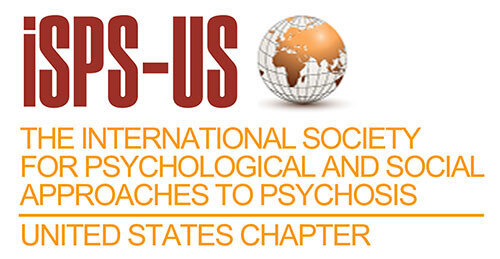
The recent New York Times article, Leading a Movement Away From Psychiatric Medication, highlights Laura Delano’s journey in stepping away from psychiatric treatment and advocating for greater autonomy in mental health care. While the article sheds light on important conversations about the harms of the current system, it also includes a troubling and misleading claim: “for people with the most disabling mental illnesses, like schizophrenia, medication remains the only evidence-based treatment.”
This statement is egregiously false.
A wealth of research supports a variety of psychosocial approaches to psychosis—approaches that are not only evidence-based but are, in many cases, more effective than long-term reliance on medication alone.
At ISPS-US, we stand firmly for an expansive and nuanced understanding of psychosis treatment—one that includes diverse therapies, peer support, Open Dialogue, trauma-informed care, culturally specific interventions, and community-based crisis alternatives. Medication can be a helpful tool for some, but it should never be framed as the sole evidence-based option. People deserve real choices and fully informed consent.
One of our members, Dr. Jim Probert, submitted the following letter to the editor in response to the article, which was not published. We are uplifting it here to ensure this critical perspective is heard:
To the Editor:
Thank you for the in-depth article by Ellen Barry about Laura Delano and the Inner Compass Initiative, “Leading a Movement Away From Psychiatric Medication” (3/17/25).
However, as a licensed psychologist with lived experience of a mental health condition (and who is familiar with Laura Delano’s work), I question Ms. Barry’s statement that “for people with the most disabling mental illnesses, like schizophrenia, medication remains the only evidence-based treatment.”
In “Does Long-Term Treatment of Schizophrenia With Antipsychotic Medications Facilitate Recovery?” Martin Harrow and Thomas Jobe acknowledged “very little systematic evidence” supporting the “long-term benefits” of “antipsychotics…[and] even some longitudinal data suggesting the opposite.” They acknowledged research including landmark World Health Organization studies demonstrating “better outcomes in many developing countries where only a small percentage of” diagnosed “schizophrenia patients were treated with antipsychotics.”
These issues deserve a larger context: For example, a president of the American Psychiatric Association acknowledged the vast majority of individuals diagnosed with mental illness will never be violent to others. The British Psychological Society called for significant revision of how we understand mental distress. Providing genuine informed consent can be part of a paradigm supporting more of us to reclaim our lives in the world.
Submitted by:
Jim Probert, PhD
Clinical Associate Professor/Licensed Psychologist
Coordinator, Peer Support at UF
University of Florida Counseling and Wellness Center
